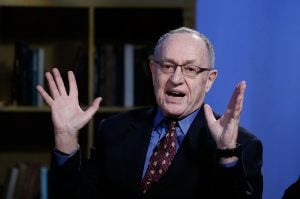The first half of 2019 has had an exciting number of interesting copyright stories, particularly with SCOTUS involvement in a number of cases. Here’s a look back at some of the most significant copyright stories in first six months of this year.
SCOTUS Clarifies When Registration Occurs for Purposes of Initiating Copyright Litigation
In Fourth Estate Public Benefit Corp. v. Wall-Street.com, SCOTUS unanimously held that copyright litigation may not begin until after the Copyright Office has acted upon a registration application. At issue in the case was a determination of what counts as registration for purposes of initiating litigation: the filing date, or the actual grant of a registration certificate by the Copyright Office. During oral arguments, the justices addressed many of the practical implications of permitting litigation to proceed prior to Copyright Office registration, questioning what would happen if the Copyright Office later determined that the particular work-at-issue was not eligible for copyright protection. The Court unanimously agreed that merely filing for registration is insufficient for litigation purposes.
SCOTUS Agrees to Hear Two Copyright Cases in October 2019 Term
At the end of the 2018-2019 term, SCOTUS agreed to hear two cases with potentially significant impacts for copyright in the upcoming term. The first case, Allen v. Cooper, involves a question of whether states can invoke sovereign immunity in copyright infringement cases or whether sovereign immunity was properly abrogated by the Copyright Remedy Clarification Act (CRCA). While the Court has never determined whether CRCA was a valid exercise of Congressional authority, in 1999, SCOTUS issued a pair rulings in the patent and trademark context (known as the Florida Prepaid cases) finding that the Plant Variety Protection Remedy Clarification Act and Trademark Remedy Clarification Act did not validly abrogate state sovereign immunity. Since then, courts have almost uniformly applied Florida Prepaid to the copyright context and allowing states to continue asserting sovereign immunity in copyright infringement cases.
The second case, Georgia v. Public.Resources.Org involves a question of whether annotated state laws are in the public domain or whether they may be copyrighted. The Eleventh Circuit issued a narrow ruling applicable to the specific facts of the case that because the annotations of the Georgia State Code were done at the direction of the state and intertwined with the law itself, copyright protection did not apply and the annotated code is in the public domain. While it was unsurprising to see the state of Georgia appeal the ruling, what is curious about this particular petition for writ of certiorari is that the winner in the Eleventh Circuit, Public.Resources.Org, supported the petition. It’s quite unusual to see a winning party support review by SCOTUS.
Published Works Enter Public Domain in United States for First Time in 20 Years
Due to the Copyright Term Extension Act in 1998, a 20-year moratorium was placed on published works entering the public domain in the United States. January 1, 2019, saw a number of significant cultural works enter the public domain, such as Charli Chaplin’s film The Pilgrim, Cecil B. DeMille’s film The Ten Commandments, Kahlil Gibran’s book The Prophet, Agatha Christie’s Murder on the Links, e.e. cumming’s Tulips and Chimneys, Hungarian composer Bela Bartok’s Violin Sonata No. 1 and 2, and several compositions by the likes of Louis Armstrong, George Gershwin, Oscar Hammerstein, and John Phillip Sousa. These, and other works, are now free for all to use, without seeking permission from the rightholder. Assuming we don’t see another copyright term extension in the United States, each year we can look forward to New Year’s Day as Public Domain Day, in which we will welcome the available of new works to the public domain.
EU Adopts Directive on Copyright in the Digital Single Market
After years of discussion and consultation, the EU passed its Digital Single Market Directive, significantly altering the copyright landscape. Two articles in particular garnered a lot of attention. One concerns a “link tax” which would allow publishers to charge platforms to display a brief snippet and link to the story. Such a practice could exponentially increase costs and ultimately be impractical. The other extremely controversial provision involves automated filtering, placing a burden on platforms to monitor user uploads and prevent infringing content from being uploaded to the platform. Automated filtering is notoriously problematic and algorithms are ill-equipped to understand free speech or limitations and exceptions. Now at the implementation stage in individual EU countries, looking at exactly how the directive plays out in implementing legislation is something to watch.
Will SCOTUS Hear Case Involving Copyrightability/Fair Use of Software Interface?
I’ve written about the long-running saga involving litigation between Oracle and Google before (and DisCo Project has a great timeline and comprehensive coverage of the case), and many are closely watching to see whether SCOTUS will accept Google’s petition for cert in the case involving two critical questions: whether copyright protection extends to application programming interface (APIs) and, if it does, whether Google’s use of the Java interface was fair use. While the jury in the case found in favor of Google, the Federal Circuit twice reversed. The Federal Circuit’s decisions were significant, altering both the common understanding of copyrightability of API and also imposing a novelty standard in the fair use calculus that has not previously existed. Should SCOTUS accept cert, expect this to be the most closely watched copyright case for the term given the immense impacts the ruling will have on technology, computers, and software.
Krista L. Cox is a policy attorney who has spent her career working for non-profit organizations and associations. She has expertise in copyright, patent, and intellectual property enforcement law, as well as international trade. She currently works for a non-profit member association advocating for balanced copyright. You can reach her at kristay@gmail.com.
 INTERNATIONAL – Zimbabwe is seeking to revamp its investment markets after it held its first treasury bills auction on Tuesday to revamp capital markets.Unchained treasury bills issuance under former leader Robert Mugabe worsened the country’s economic plight as they were used to fund the government’s expenditures.
INTERNATIONAL – Zimbabwe is seeking to revamp its investment markets after it held its first treasury bills auction on Tuesday to revamp capital markets.Unchained treasury bills issuance under former leader Robert Mugabe worsened the country’s economic plight as they were used to fund the government’s expenditures.
















 Kathryn Rubino is a Senior Editor at Above the Law, and host of
Kathryn Rubino is a Senior Editor at Above the Law, and host of